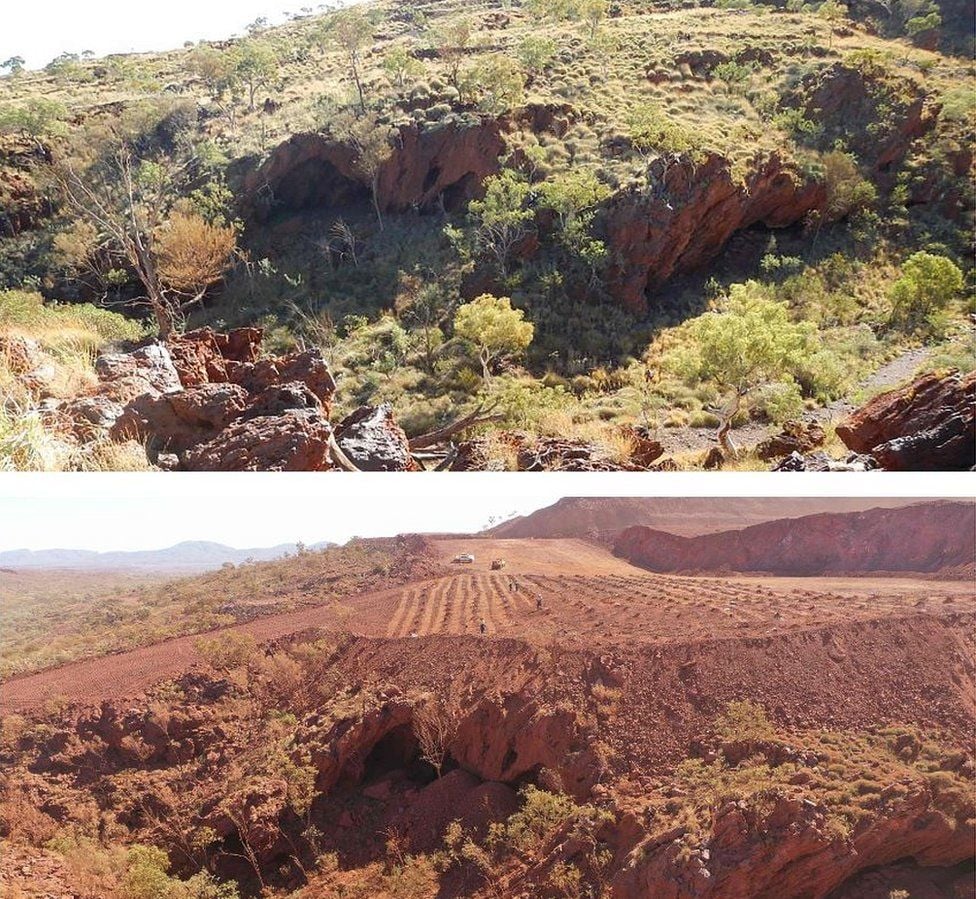
Rio Tinto chief executive officer (CEO) Jean-Sébastien Jacques has stepped down over criticism from the company's destruction of a 46,000-year-old indigenous site in Australia.
Jacques will resign from the top position at mining giant Rio Tinto due to pressure from investors and the public after the firm destroyed a sacred indigenous site in Australia to expand an iron ore mine.
Destruction of aboriginal site
The mining company decided to go ahead and blow up the Juukan Gorge rock shelters in Pilbara, Western Australia, despite the opposition of Aboriginal traditional owners.
The caves, which are considered as one of Australia's most significant archaeological research sites, had shown evidence of continuous human habitation dating back 46,000 years.
Artefacts discovered at the site include a 28,000-year-old animal bone tool and a 4,000-year-old belt made of plaited human hair and researchers had directly linked these to the Puutu Kunti Kurrama and Pinikura (PKKP) people, the traditional owners of the land, via DNA testing.
The site sits above approximately eight million tons of high-grade iron ore, with an estimated value of $95 million.
Rio Tinto has issued a statement saying: Significant stakeholders have expressed concerns about executive accountability for the failings identified." According to the company's board, Jacques will remain as chief until March or until a successor was appointed.
Other senior executives will also be stepping down at the end of the year, including the heads of the miner's iron ore and corporate relations divisions.
Currently, Australia's parliament is looking into the miner's actions.
Aftermath of the destruction
The mining firm also conducted its own investigation earlier this year, resulting in the reduction of bonuses for directors and an initiative to mend relations with Aboriginal communities.
Rio Tinto chairman Simon Thompson explained: "What happened at Juukan was wrong and we are determined to ensure that the destruction of a heritage site of such exceptional archaeological and cultural significance never occurs again at a Rio Tinto operation."
John Ashburton, a PKKP representative, said the incident was a "devastating blow" to the group.
He pointed out: "There are less than a handful of known Aboriginal sites in Australia that are as old as this one... Its importance cannot be underestimated."
It was revealed last week that several days prior to the site's destruction in May, the mining giant hired lawyers in case opponents tried to seek injunctions to stop them.
Critics of the move pointed out that although the company said it had permission for the work under Aboriginal heritage laws, it also means the firm was aware of the site's cultural importance.
Last month, Rio Tinto announced that Jacques' bonus was slashed by £2.7 million while Chris Salisbury, chief executive of iron ore, and Simone Niven, group executive of corporate relations, will be receiving cuts of over half a million pounds each.
However, Tom Stevenson, investment director at Fidelity International, claimed that Rio Tinto's actions had been "slow and misguided".
He said: "It was slow because when it knew the significance of those sites it could have reversed its position and it didn't."
"And it is misguided because when it cut bonuses recently it effectively put a price on something which is basically priceless and I think that that was tin-eared really. I'm not surprised that we've moved onto this stage where the chief executive felt that he had to go," Stevenson added.






